Butterfly Highway
A network of pollinator pit stops is taking root across the state.
By Leah Chester-Davis | Photos by North Carolina Wildlife FederationMonarch butterfly on purple coneflower
Above, top: Bees on sunflower. Above, bottom: Children learn about butterflies and other pollinators at community events.
A new highway is quickly moving across the state and there just may be a welcomed pit stop near you. The Butterfly Highway is designed to help not just butterflies but bees and other pollinators. The North Carolina Wildlife Federation (NCWF) began this highway program in response to the alarming decline of Monarch butterflies. The beauty of this effort — in addition to its work to restore habitat for species that are critical to our survival — is that everyone can get involved.
“It takes urban, rural and suburban sites,” says NCWF CEO Tim Gestwicki. “Pollinators are everywhere. It is a cumulative effort.”
The Butterfly Highway took flight when doctoral student Angel Hjarding came up with the idea while exploring research for her dissertation at the University of North Carolina at Charlotte. She launched the project in several neighborhoods in Charlotte. Earlier this year, the program received a major lift when NCWF adopted it and hired Hjarding to oversee it statewide. What most excites her about the project is “building a community of people that are part of the Butterfly Highway across all income and racial groups.”
“It’s an exciting and positive way to bring attention to the plight of our valued pollinators and their critical role in the web of life,” Hjarding adds.
This conservation initiative restores native pollinator habitats to areas affected by agriculture, urbanization and land use change. It has quickly become a flagship program of the wildlife federation, explains Gestwicki.
Hjarding, director of pollinator and wildlife habitat programs, and William Hughes, a neighborhood leader for the Butterfly Highway and president of the Community Alliance for Wildlife, a chapter of the North Carolina Wildlife Federation based in Charlotte
“Anyone can participate,” he says. “From apartment balconies to multi-acre farms, no space is too small or too large to provide habitat for pollinators.” Pollinator habitats range from backyard “pollinator pit stops” to large-scale roadside habitat restoration.
In the few short months of the Butterfly Highway’s existence, more than 1,000 pollinator sites have been added in the state, from the mountains to the coast. Individual homeowners, public utilities, state and local transportation agencies, park and recreation departments, and schools are among the many partners involved.
“Pollinators are important to a holistic ecosystem,” Gestwicki explains. “They bind the economy and environmental conversation in our state. Without them, we are in a bind.”
Become Part of the Highway
Now is a great time to seed for a pollinator garden that can become a part of the Butterfly Highway. The North Carolina Wildlife Federation shares tips on how you can help build this important pollinator support system:
- Add a mix of perennial and annual plants to your property. The best spot is one that gets at least six hours of sun every day. Clear away all grass and weeds before planting. When plants are mature and attracting pollinators, consider adding a water source, even if it’s a small pan of water with a rock or two for pollinators to rest upon.
-
September to December is the best time to plant seeds of many favorite pollinator plants. Seed works well, particularly for larger scale projects. When planting established plugs, plant them in spring and summer.Seed packets are available from butterflyhighway.org for $5 per packet. One packet will cover an area up to 25 square feet. Among the plants in the seed mix: common yarrow, common milkweed, butterfly milkweed, smooth blue aster, greater tickseed, goldenmane tickseed, whorled tickseed, purple coneflower, Joe Pye weed, oxeye sunflower, blazing star/spiked gay feather, wild bergamot, black-eyed-Susan, roughleaf goldenrod, Ohio spiderwort and New York ironweed, which are all perennials. Indian blanket, partridge pea and crimson clover are annuals in the mix. The Butterfly Highway website lists other native pollinator plants to consider.
Above, top: A small garden is a pollinator pit stop on the Butterfly Highway. Above, bottom: Native plants along roadsides and meadows add beauty and important habitats for pollinators.
- Register your pollinator habitat at butterflyhighway.org so others can see the network throughout the state of pit stops that support our pollinators. Registration is free!
- If you would like an official sign to designate your garden as part of The Butterfly Highway, they are available for $25 at the same website as the seed packets.
- Implement sustainable gardening practices. Use native plants and avoid insecticides.
Learn more about other North Carolina Wildlife Federation conservation programs at ncwf.org.
About the Author
Leah Chester-Davis has her own business, Chester- Davis Communications (chester-davis.com), specializing in food, farm, gardening and lifestyle brands and organizations.-
Share this story:

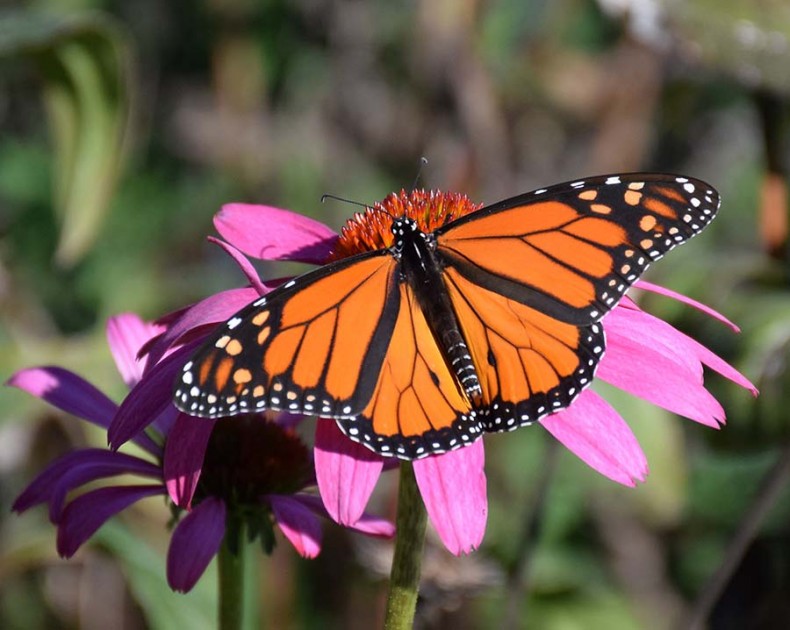
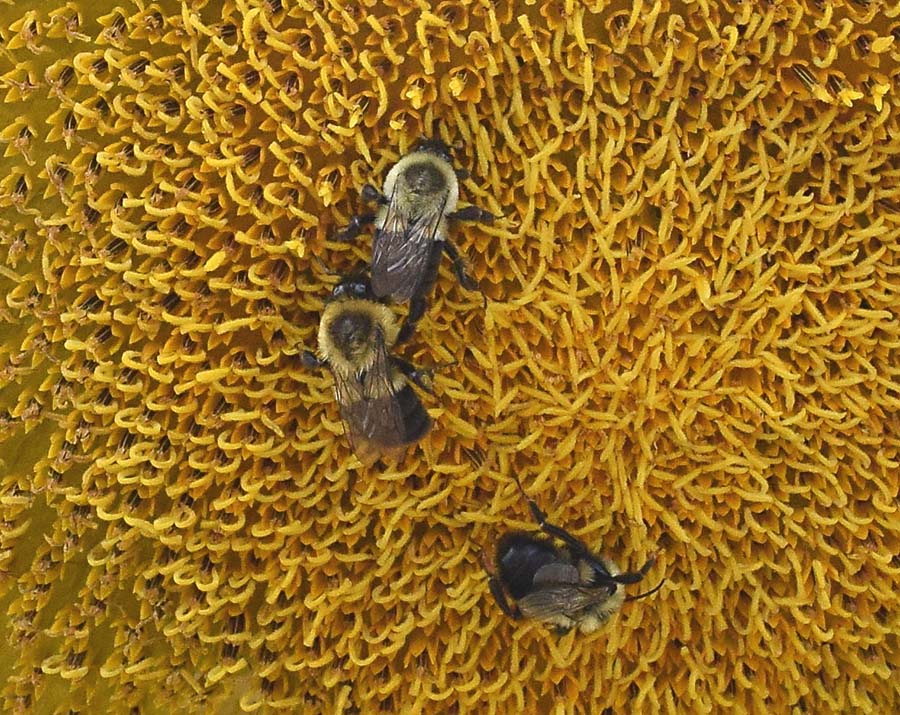
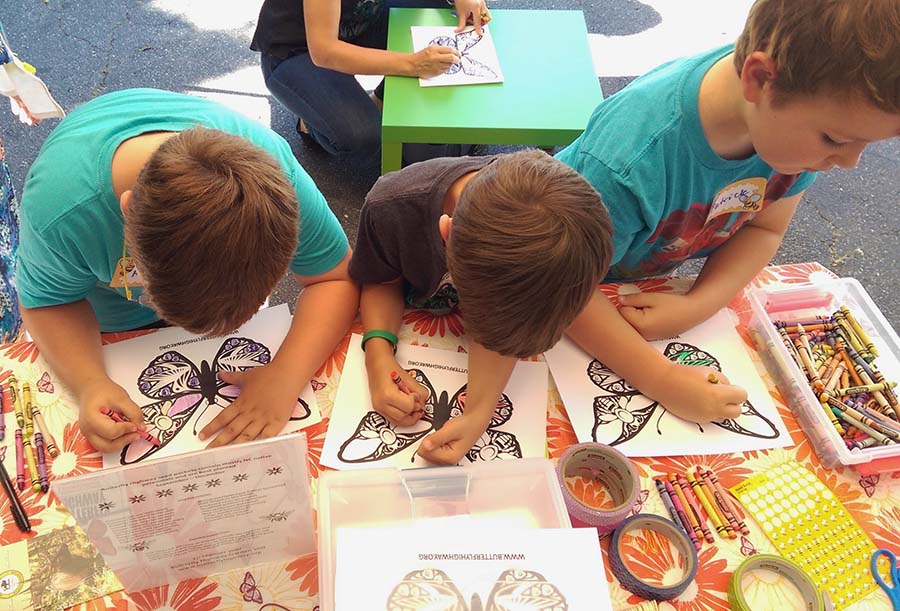

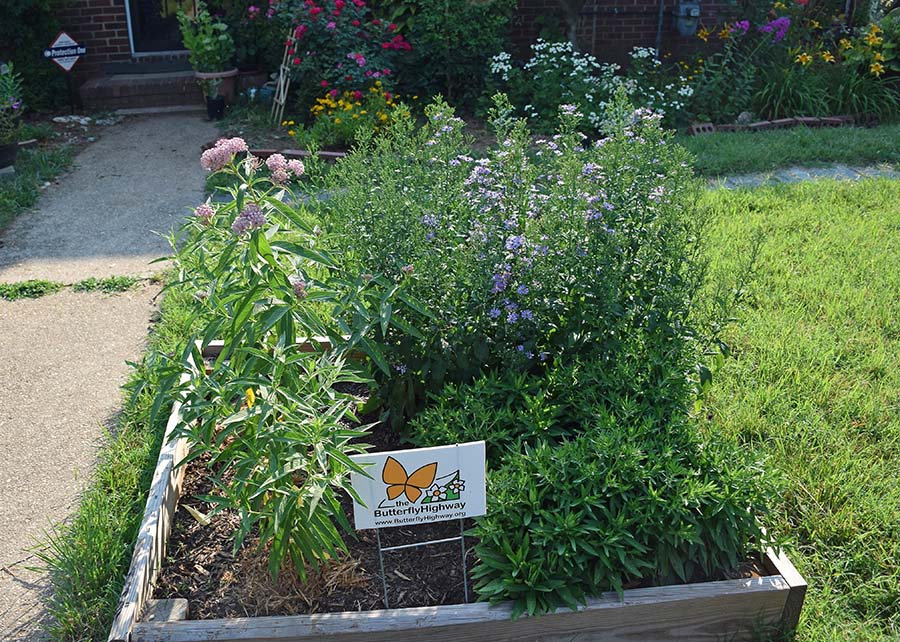
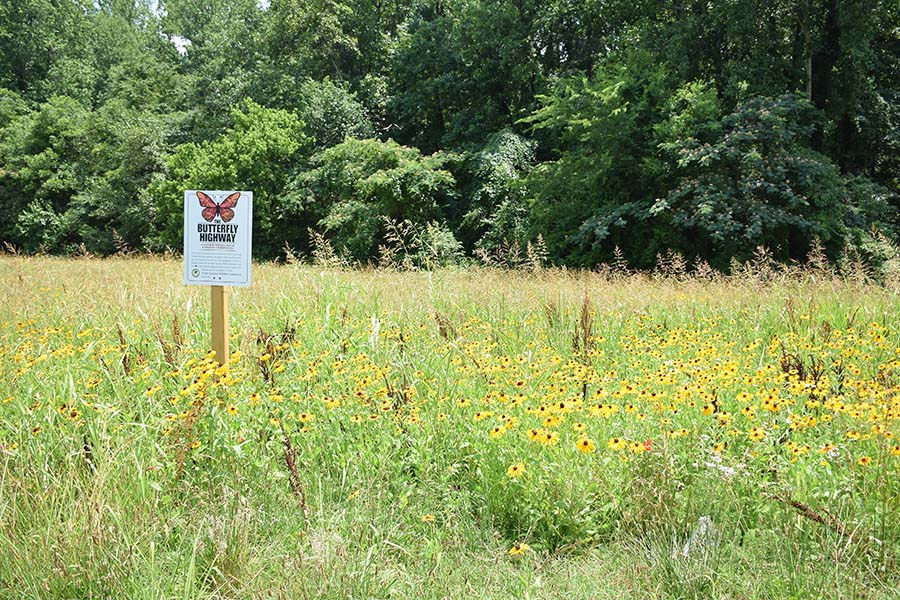


Comments (3)
Sandy |
November 02, 2016 |
reply
http://bit.ly/CC-ButterflyHighway
Carolina Country |
November 03, 2016 |
reply
Lynn |
March 16, 2021 |
reply